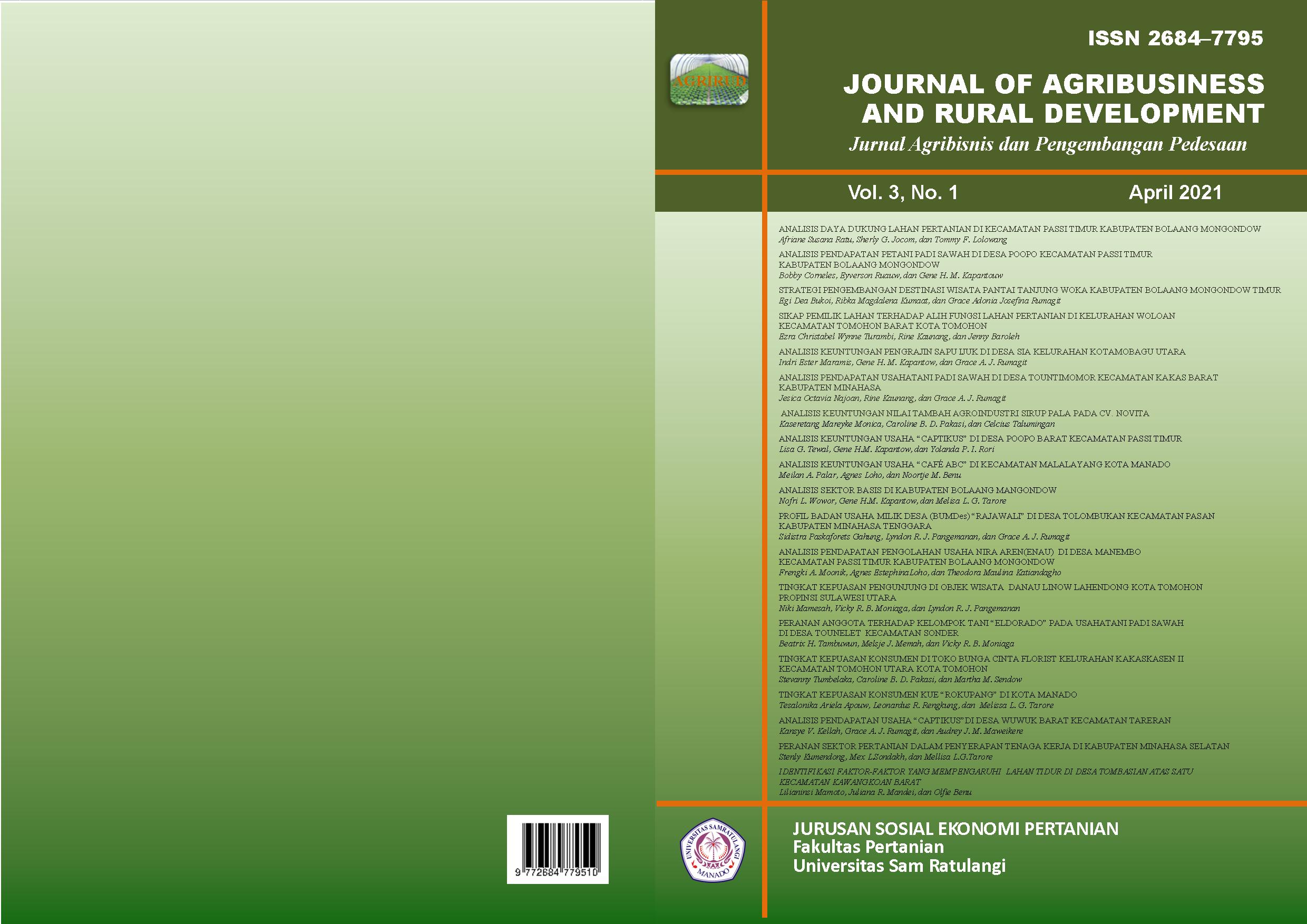ANALISIS PENDAPATAN PETANI PADI SAWAH DI DESA POOPO KECAMATAN PASSI TIMUR KABUPATEN BOLAANG MONGONDOW Income (Analysis of Rice Farmers In Poopo Village, East Passi Sub-District, Bolaang Mongondow Regency)
DOI:
https://doi.org/10.35791/agrirud.v3i1.33928Keywords:
Income Analysis, Paddy Sawah, Poopo VillageAbstract
Poopo Village is one of the villages included in the East Passi Subdistrict, Bolaang Mongondow Regency, which is very potential for lowland rice farming because it is supported by the climate, facilities and soil structure. Most of the population operates rice business as their main livelihood, with 87 farmers with a rice area of about 19 ha.
Based on the results of the analysis to find out how much the income of farmers in rice- based areas. The research was conducted from February to April 2020. The data collection method used individual approaches through direct observation of farmers working on lowland rice. Data were collected using two types of data, namely primary data and secondary data. Primary data were obtained from interviews with 20 (twenty) respondents using a questionnaire while secondary data were obtained from literature related to this study.
Based on the research results, it can be seen in Table 11 that the income per ha for lowland rice farming is Rp. 6,964,694.44 / Ha, if divided for 3 months, then the monthly income is IDR 2,321,564.81 / Ha. According to Mubyarto (1989) lowland rice farming productivity is the ratio between revenue and costs incurred, good farming is productive or efficient farming. While the results of the calculation of R / C research get an average result of 1.44. Based on the R / C, lowland rice farming in Poopo Village, Passi District is efficient because the ratio is greater than 1.References
Astuti, 2013. Analisis Pendapatan Usaha Tani Padi Sawah (Oriza Sarival) di Kecamatan Kaway Kabupaten Aceh Barat. Program Studi Agribisnis Fakultas Pertanian Universias Teuku Umar Meulaboh Aceh Barat.
Hafsah, Mohammad Jafar. 2004. Potensi, Peluang, dan Strategi Pencapaian Swasembada Beras dan Kemandirian Pangan nasional Melalui Produksi Mantap. Jakarta. Deptan.
Hamid A, 2016. Analisis Pendapatan Petani Padi Sawah di Kecamatan Woyla Kabupaten Aceh Barat. Fakultas Pertanian Universitas Teuku Umar Meulaboh Aceh Barat.
Mangunwidjaya, D. dan Sailah, I. 2009. Pengantar Teknologi Pertanian. Penebar Swadaya.
Suger, HR. 2001. Bercocok Tanam Padi. CV. Aneka Ilmu. Anggota IKAPI. Supardi, S, 2000. Pengantar Ilmu Ekonomi. Surakarta : UNSOED. Purwokerto Suratiyah, K. 2008. Ilmu Usahatani. Penebar Swadaya. Jakarta.






